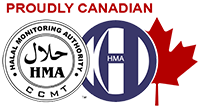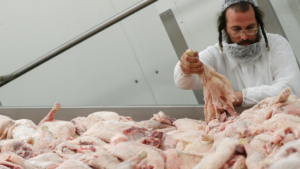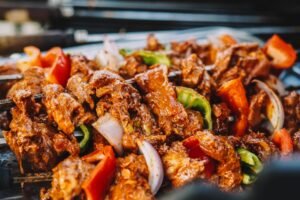The idea of halal-certified foods are now growing rapidly worldwide as an alternative benchmark for the safety, hygiene, and quality assurance of what we eat or drink daily. Thus, meat and foods manufactured by halal prescriptions are readily accepted by both Muslim and non-Muslim customers. Since Halal foods necessitate stringent quality standards, customers increasingly see Halal food items as safe, sustainable, humane, and “animal-friendly.” Muslim customers, for their part, choose to live a Halal lifestyle and are continuously educated about food companies that adhere to Halal standards; the seal of approval from a certifying body is vital. For a Muslim customer, halal foods and beverages signify that the substance has fulfilled the Shariah law specifications. At the same time, for a non-Muslim consumer, it represents a sign of hygiene, quality, and safety when manufactured solely under the Holistic Halal Assurance Management System. There are many recognized halal food certification companies all around the world that follow halal food regulations and laws and certify thing as halal.
HALAL MONITORING AUTHORITY that works in Canada is one of them. This Halal Monitoring Authority Canada understands the complexities of the food industry. Therefore, It has formulated a three-part inspection strategy that covers the entire path, from the source (slaughterhouses/manufacturer) to the middlemen (processors and distributors), and finally to the retailers (butchers and food outlets). HMA’s practice entails inspecting food, beef, and other items from the point of origin to the point of slaughter, as well as packing and shipping. We HMA Canada not only certify the products. We are with them throughout the procedure. It is the only way to be sure that the food you consumers consume is 100% halal. So to get halal certified or for any query feel free to contact us. Our professionals will contact you back as early as possible. In halal-certified, hygiene is highly valued. It encompasses all facets of one’s body, clothes, machinery, and working conditions to manufacture or produce foods, beverages, and materials. The goal is to ensure that the food provided is healthy, sanitary, and does not endanger human health. In the sense of halal, hygienic food, beverages, and materials are those that are free of najis or contaminants, as well as unhealthy germs. As a result, halal is very specific in food matters, especially in keeping ourselves and the items around us clean to avoid diseases. As a result, a healthy food, drink, or substance does not affect customers, whether Muslim or non-Muslim, when cooked, consumed, or used as intended. To ensure our safety, producers should take the appropriate measures to comply with Good Manufacturing Practice and Good Hygiene Practice. Based on religion, Halal certified meat places a strong emphasis on hygiene and cleanliness. This means that livestock raised on Halal farms are raised differently because Halal farmers must follow the rules defined by their faith. The animals must be well-cared for and fed nutritious, safe food.
Antibiotics and other additives are not used by halal growers. Halal certified farmers often avoid using anti-infective agents and synthetic concoctions that many other increasingly profiteering farmers can use. Since the word “efficiency” is often used when referring to food and foodservice, it is a crucial consideration to remember. Quality can be described broadly as “the degree of a product’s conformance to its requirements to maintain customer loyalty and adapt to market conditions.” Quality is further established in the production of Halal food through dietary rules, traditions, principles, or religious prescriptions. Halal meat is a quality feature as well as a moral necessity. As food security is synonymous with proactivity and the establishment of standards to ensure stable food supply chains, quality assurance has become a “building block” of food safety policies. Measures and standards influencing food safety and consistency have risen to the top of customer concerns, industry policies, and government policy programs, putting growing pressure on producers to enforce and sustain appropriate practices and controls to ensure quality is provided to customers.
Islamic halal slaughter requires that the blood be removed entirely from the corpse, resulting in cleaner, fresher meat-free bacteria. Furthermore, when the meat is not stressed, it is free of “fear toxins,” resulting in softer meat-free radicals released when cattle are stressed. According to one school of thinking, this will result in safer and better meat for the mind and body. Many people say that Halal meat tastes better because the blood in meat accumulates and harms flavour. Halal meat is more juicy and flavorful. It also lasts longer due to the lack of blood, which limits bacteria development. Taking the best quality of care of one’s own body is an essential condition of a Muslim. One of the most important things they can do to make sure the food they consume is of the finest quality and fulfill the halal food requirement. We are all aware that nutritious ingredients are essential for maintaining a healthy weight, immune system, memory, and metabolic functions.



